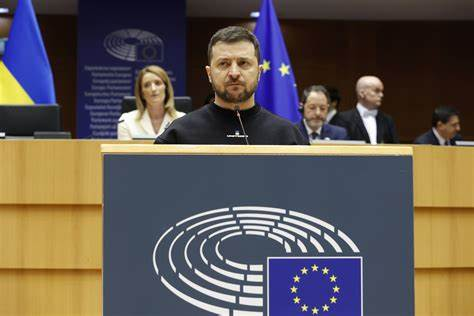
Sergey Lavrov, the Minister of Foreign Affairs of Russia, and Yury Ushakov, Assistant to the President of Russia, represented Russia at the meeting. The US delegation was composed of Secretary of State Marco Rubio, Assistant to the President for National Security Affairs Waltz, and the US Special Envoy for Middle East Affairs Witkov.
This high - level US - Russia meeting is the first encounter at the foreign - ministerial level between the two countries since the outbreak of the Russia - Ukraine conflict in 2022. It is regarded as a crucial turning point in US - Russia relations. Saudi Foreign Minister Faisal was also present at the meeting. As the host, Saudi Arabia not only provided the venue but also sought to play a mediating role in facilitating communication between the two sides. Once the news broke, it instantly caught the world's attention, becoming a focal event on the international political stage. Media from various countries zeroed in on it, filled with anticipation and speculation about the outcome of the meeting.
Upon hearing the news of the US - Russia meeting, Ukraine's reaction was intense and complex, with anxiety and worry taking center stage. Ukrainian President Volodymyr Zelensky clearly stated, "Not participating, not recognizing, not knowing." Behind these six words lies Ukraine's profound fear of its destiny being manipulated by major powers.
During a media interview, Zelensky was resolute in his words, emphasizing that without Ukraine's participation, it would be difficult for the Saudi meeting to achieve substantial results. He would never recognize any agreements related to his country that were reached without Ukraine's involvement. This attitude reflects Ukraine's deep - seated concern about its interests being overlooked. During the past conflict, Ukraine has paid a huge price. The country lies in ruins, and its people have been displaced. Now, with the US and Russia discussing issues closely related to Ukraine at the negotiating table while excluding Ukraine, it undoubtedly makes Ukraine feel betrayed.
European countries are equally uneasy. On the eve of the US - Russia meeting, French President Emmanuel Macron urgently summoned leaders of many European countries to a meeting in Paris on February 17. German Chancellor Olaf Scholz, British Prime Minister Keir Starmer, and other important leaders attended. The meeting aimed to discuss the situation in Ukraine and European collective security issues. However, the meeting was fraught with disagreements and failed to reach the expected consensus.
European countries' concerns about the US - Russia meeting mainly stem from the fear of being marginalized. Europe has long played a significant role in the Russia - Ukraine conflict. Economically, it has suffered from an energy crisis and economic stagflation due to sanctions against Russia, and politically, it has been deeply involved. As an ally of Europe, the US held high - level talks with Russia without sufficient communication with Europe, leaving Europe feeling excluded from issues related to its own security and interests and losing its say.
From a geopolitical perspective, Europe is worried that the agreement reached by the US and Russia in the meeting may harm Europe's security interests. The shift in the US's stance during the Russia - Ukraine conflict has made Europe fear that the US may make excessive concessions to Russia in the negotiations for its own interests, thus exposing Europe to potential security threats from Russia. At the same time, there are differences within Europe regarding its policy towards Russia. Eastern European countries, due to their bordering Russia, feel the security threat from Russia more directly and tend to adopt a tough stance towards Russia. Western European countries, on the other hand, place more emphasis on economic interests and are more reserved in imposing sanctions on Russia. The US - Russia meeting may disrupt the delicate balance within Europe regarding its Russia policy and exacerbate internal contradictions in Europe.
In addition, the change in US - Russia relations has had a profound impact on Europe's strategic autonomy. For a long time, Europe has relied on the US - led NATO for security and mostly followed the US in diplomacy. The US - Russia meeting has made Europe realize that its strategic autonomy in international affairs is seriously inadequate, and it cannot take the initiative in issues related to its core interests. This has prompted Europe to re - evaluate its relationship with the US and consider how to strengthen its strategic autonomy and reduce its dependence on the US.
This US - Russia meeting is undoubtedly a major event in the international political landscape. It has left Ukraine and Europe dumbfounded in this geopolitical game, and at the same time, Europe has completely lost its negotiating initiative.

The U.S. third-quarter GDP growth rate, strikingly highlighted at 4.3%, not only surpassed market expectations but also earned the label of "the fastest in two years."
The U.S. third-quarter GDP growth rate, strikingly highligh…
Recently, US personnel intercepted a "Century" super oil ta…
According to Xinhua News Agency, the subtle changes in the …
The rapid development of artificial intelligence has brough…
In December 2025, Taiwan's political scene was shaken by a …
When Apple appears for the Nth time on the list of penaltie…